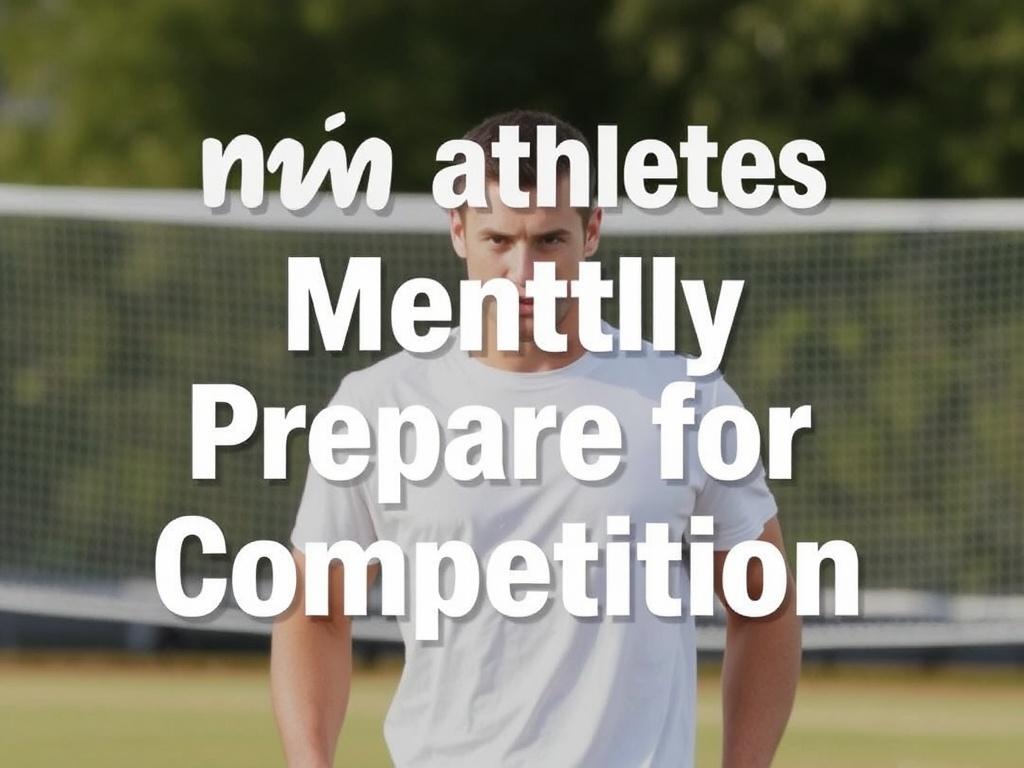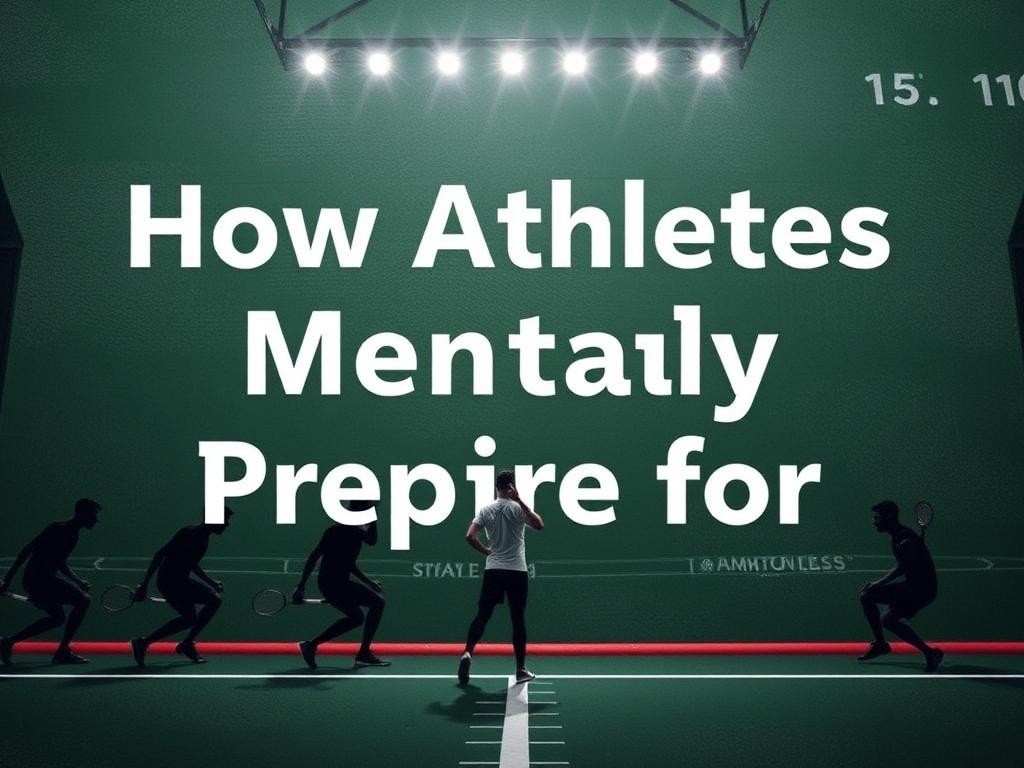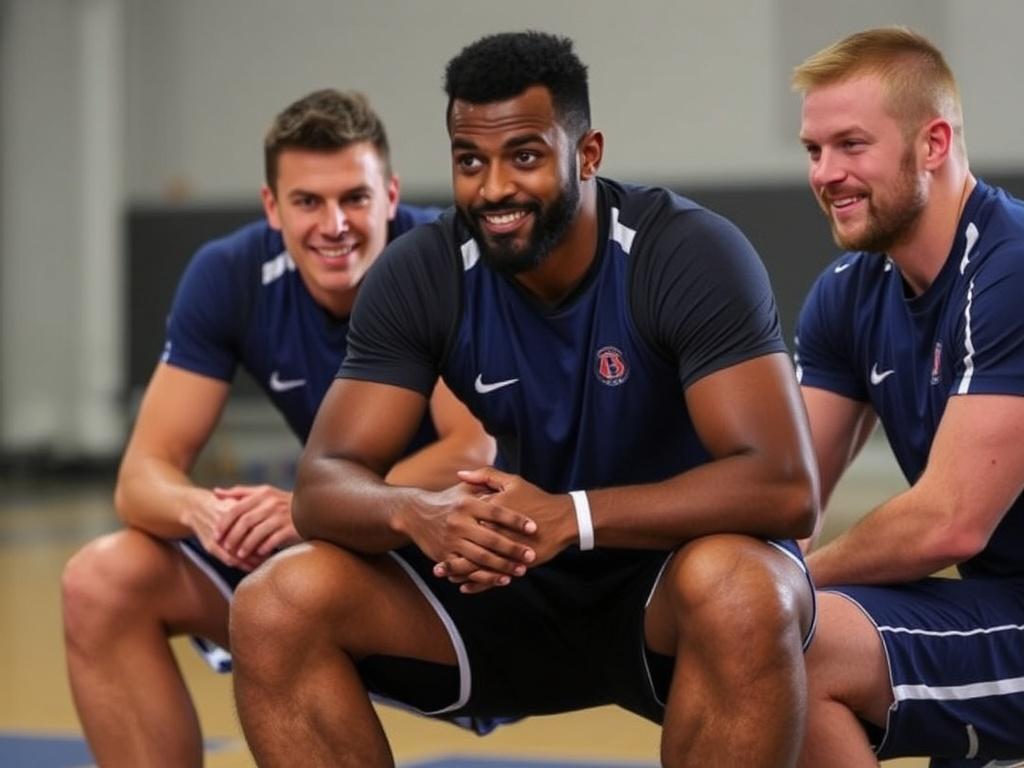The Importance of Mental Preparation in Sports

When you think about athletic success, physical training often comes to mind first. Hours of running, lifting, practicing, and drilling shape an athlete’s performance. But what truly sets apart good athletes from champions isn’t just muscle or endurance—it’s how they mentally prepare for competition. Mental preparation in sports is crucial because it equips athletes with the focus, resilience, and confidence needed to perform at their best when it matters most. Without a strong mental game, even the most physically gifted competitors can falter under pressure.
Imagine being on the starting line, heart racing, adrenaline pumping. This high-pressure moment is where mental preparation for athletes plays a pivotal role. Athletes who have developed mental strategies know how to calm their nerves, visualize success, and harness their motivation. Whether it is a solo race, a team match, or a high-stakes tournament, mastering mental skills can help athletes push through fatigue, maintain concentration, and make split-second decisions.
Common Techniques Athletes Use for Mental Preparation

Athletes across different sports and levels employ a variety of effective mental preparation techniques. By incorporating these methods into their daily routines, they can reduce stress, avoid distractions, and boost their performance.
Visualization and Mental Imagery
One of the most powerful tools athletes rely on is visualization. This involves imagining themselves performing a task flawlessly, vividly seeing each movement, and feeling the associated emotions. Visualization or mental imagery creates neural patterns in the brain similar to those formed during physical practice. By mentally rehearsing every aspect of their performance, athletes build confidence and reduce anxiety before actually stepping onto the field.
Goal Setting and Positive Self-Talk
Setting clear, achievable goals helps athletes focus their efforts and measure progress. SMART goals (Specific, Measurable, Achievable, Relevant, Time-bound) give a roadmap to success. Alongside goal setting, positive self-talk is critical. By replacing negative thoughts with supportive and encouraging inner dialogue, athletes reinforce belief in their abilities. Phrases like “I am prepared,” “I can handle this,” and “One step at a time” become powerful mental anchors during competition.
Mindfulness and Relaxation Techniques
Stress and anxiety can sabotage performance, but mindfulness practices and relaxation techniques provide a way to center the mind and control emotions. Deep breathing exercises, progressive muscle relaxation, and meditation help athletes reduce tension and stay calm. Mindfulness also promotes present-moment awareness, allowing athletes to stay focused on the task rather than worries about outcome or past mistakes.
Pre-Competition Routines
Routines create consistency and predictability, which is crucial when athletes need to manage nerves. Rituals before competition—like warm-up sequences, listening to a favorite song, or specific stretches—signal to the brain that it’s time to perform. Having a well-established pre-competition routine can help athletes enter a “flow state” where they are fully immersed and performing effortlessly.
The Role of Sports Psychologists and Mental Coaches
Many elite athletes work closely with sports psychologists or mental coaches to develop personalized mental preparation plans. These experts help athletes identify mental blocks, build mental toughness, and develop strategies tailored to their sport and personality. The involvement of a mental coach often makes the difference in an athlete’s ability to maintain focus during adversity, recover from setbacks, and sustain motivation through long training cycles.
Techniques Used by Sports Psychologists
| Technique | Description | Benefits |
|---|---|---|
| Cognitive Behavioral Therapy (CBT) | A method to change negative thought patterns and behaviors | Improved confidence and reduced performance anxiety |
| Biofeedback | Tracking physiological responses like heart rate to manage stress | Better control over physical stress responses |
| Goal Setting Workshops | Structured sessions to create and refine performance goals | Enhanced motivation and clear direction |
| Visualization Training | Guided imagery sessions focusing on performance scenarios | Increased mental rehearsal effectiveness and self-confidence |
The tailored strategies sports psychologists provide are integrated into athletes’ everyday routines. For example, an athlete might work on cognitive restructuring to combat self-doubt or practice relaxation techniques before critical matches.
How Athletes Deal with Pressure and Stress
Competition can be intense and unpredictable, often bringing pressure that threatens an athlete’s focus and composure. Learning how athletes mentally prepare for competition pressure is essential to understanding sports performance.
The Science Behind Stress in Competition
Stress triggers a fight-or-flight response activated by the nervous system. While moderate stress can enhance alertness and improve reaction time, too much stress causes performance to drop—this phenomenon is known as “choking.” Controlling stress is about finding the optimal arousal level to maximize performance without becoming overwhelmed.
Practical Strategies for Pressure Management
- Breathing exercises: Slow, controlled breathing reduces heart rate and calms the nervous system.
- Focus shifting: Concentrating on process goals rather than outcomes helps reduce pressure.
- Self-compassion: Accepting that mistakes are part of the game minimizes fear of failure.
- Pre-performance cues: Mental or physical triggers that reset focus, such as touching a wristband or repeating a cue word.
Athletes train themselves to recognize signs of escalating stress and apply these techniques instantly to maintain optimal focus during competition.
Building Mental Toughness: What Does It Take?
Mental toughness is often described as the unwavering ability to stay focused, confident, and resilient no matter the circumstances. It is a hallmark of champions in every sport. But how do athletes cultivate this vital trait?
Core Components of Mental Toughness
Mental toughness isn’t innate; it is developed through consistent effort, experience, and deliberate practice of mental skills. Key components include:
- Confidence: Belief in one’s ability, built through preparation and past successes.
- Focus: The capacity to maintain concentration on the objective despite distractions.
- Resilience: The ability to bounce back quickly from failure or setbacks.
- Motivation: Strong internal drive and commitment to goals.
- Emotional control: Managing emotions to prevent impulsive decisions or loss of composure.
Daily Habits to Enhance Mental Toughness
| Habit | How It Helps | Example Practice |
|---|---|---|
| Consistent Training | Builds confidence through mastery of skills | Scheduling regular practice sessions without skipping |
| Reflective Journaling | Increases self-awareness and learning from experiences | Writing about daily challenges and mindset shifts |
| Setting Challenging Goals | Pushes athletes beyond comfort zones | Attempting new techniques or increasing training intensity |
| Seeking Feedback | Identifies areas for improvement and supports growth | Working closely with coaches for honest critique |
By nurturing these habits, athletes gradually strengthen their mental resilience and preparedness for competition.
The Role of Team Dynamics in Mental Preparation

While much of mental preparation is individual, team sports introduce an additional layer of complexity. How athletes mentally prepare for team competition involves not only their own mindset but also communication, trust, and collective motivation.
Building Trust and Communication
Effective communication and trust within a team reduce uncertainty and foster a positive environment. Athletes prepare mentally by developing rituals that unify the team, such as group visualization sessions, motivational talks, or synchronized warm-ups. These activities cultivate a shared mental space where every member feels supported and focused on common goals.
Handling Collective Pressure
In a team setting, pressure is shared but can also be magnified, as each athlete feels responsible not just for themselves but for others. Mental preparation includes learning to manage this interconnected stress and balancing individual performance with team objectives.
Examples of Mental Preparation in Different Sports
The mental preparation strategies an athlete adopts often vary depending on the nature of the sport. Let’s explore how mental preparation manifests differently across several competitive arenas.
Running and Endurance Sports
For runners and endurance athletes, mental preparation focuses on pacing strategies, sustaining motivation through fatigue, and overcoming “the wall.” Visualization of the race route and repeated mantra-based self-talk help maintain mental endurance.
Team Sports Like Basketball or Soccer
In fast-paced team sports, athletes must rapidly shift attention, respond to changing scenarios, and maintain communication. Mental preparation emphasizes situational awareness, teamwork, and stress management during high-pressure plays.
Individual Sports Such as Tennis or Golf
Sports with one-on-one matchups require intense focus and emotional regulation because athletes face direct confrontation. Techniques like pre-serve routines in tennis or controlled breathing during golf shots support optimal performance under pressure.
Emerging Trends in Mental Preparation
The field of sports psychology continues to evolve, integrating technology and new research insights to help athletes mentally prepare more effectively.
Use of Virtual Reality and Biofeedback
Virtual reality (VR) training allows athletes to simulate competition environments and practice mental skills in a controlled setting. Biofeedback devices help monitor physiological states and provide real-time insight to optimize stress management.
Mobile Apps and Mental Training Programs
Apps designed for mental skills training offer guided meditation, visualization exercises, and goal tracking that athletes can use anytime. These tools make mental preparation accessible and consistent even in busy training schedules.
Holistic Approaches
Modern mental preparation frameworks often emphasize a holistic approach, linking mental, physical, nutritional, and social support systems. Understanding how all factors influence performance enables athletes to prepare comprehensively.
Summary Table: Mental Preparation Techniques and Benefits
| Technique | Description | Main Benefit | Applicability |
|---|---|---|---|
| Visualization | Imagining successful performance scenarios | Boosts confidence and reduces anxiety | All sports |
| Positive Self-Talk | Replacing negative thoughts with encouraging phrases | Improves mindset and focus | All sports |
| Mindfulness | Focusing fully on the present moment | Reduces distractions and stress | All sports |
| Pre-Competition Routine | Set rituals before competition | Triggers flow state and reduces nerves | Individual and team sports |
| Goal Setting | Setting clear performance objectives | Provides motivation and direction | All sports |
Conclusion
The mental preparation that athletes undergo before competition is a fascinating blend of science, psychology, and individual discipline. It is often the unseen factor that elevates good performance into greatness. From techniques like visualization and mindfulness to working with sports psychologists and establishing pre-competition routines, athletes develop a flexible and resilient mindset tailored to their unique challenges. Understanding how athletes mentally prepare for competition offers valuable lessons not only for sports but for any high-pressure situation in life. At its heart, mental preparation is about controlling focus and emotions, building confidence, and nurturing the relentless motivation needed to pursue excellence. By combining physical prowess with mental mastery, athletes unlock their full potential and rise to perform their best when the stakes are highest.




















